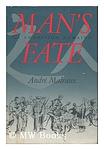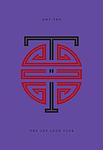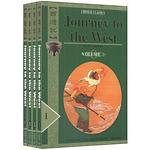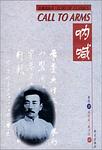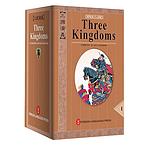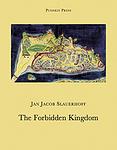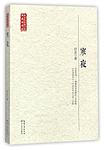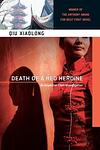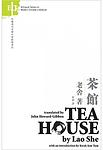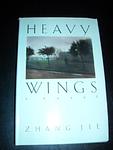The Greatest "Fiction, China" Books of All Time
Click to learn how this list is calculated.
This list represents a comprehensive and trusted collection of the greatest books. Developed through a specialized algorithm, it brings together 300 'best of' book lists to form a definitive guide to the world's most acclaimed books. For those interested in how these books are chosen, additional details can be found on the rankings page.
Genres
The "China" category for books encompasses a wide range of literature that explores the history, culture, politics, and society of China. This includes works of fiction and non-fiction, spanning from ancient times to the present day. Books in this category may delve into topics such as Chinese philosophy, art, cuisine, and language, as well as contemporary issues such as economic development, human rights, and environmental concerns. Overall, the "China" category offers readers a diverse and rich collection of books that provide insight into one of the world's oldest and most complex civilizations.
Countries
Date Range
Reading Statistics
Click the button below to see how many of these books you've read!
Download
If you're interested in downloading this list as a CSV file for use in a spreadsheet application, you can easily do so by clicking the button below. Please note that to ensure a manageable file size and faster download, the CSV will include details for only the first 500 books.
Download-
1. Man's Fate by Andre Malraux
Set in 1920s Shanghai during a time of political upheaval, the novel explores the existential themes of life, death, and the human condition through the experiences of a group of revolutionaries. The narrative follows their struggles and sacrifices for their cause, the Communist revolution, and their inevitable confrontation with their own mortality and the harsh realities of life. The book delves into the complexities of political ideologies, human relationships and the constant struggle between hope and despair.
-
2. The Joy Luck Club by Amy Tan
This novel explores the complex relationships between four Chinese-American mothers and their American-born daughters. The narrative switches between the perspectives of the eight women, revealing their pasts, their struggles with cultural identity, and the misunderstandings that have grown between the generations. The mothers, who all experienced hardship in their native China, want their daughters to have better lives and thus push them to excel in America. The daughters, in turn, struggle to reconcile their American surroundings with their Chinese heritage.
-
3. The Good Earth by Pearl S. Buck
This novel tells the story of a poor farmer in rural China, who struggles to survive and prosper. Over time, he manages to build a life for himself and his family, eventually becoming a wealthy landowner. However, his newfound wealth and status lead to a moral decline, as he becomes disconnected from the land that gave him everything. The narrative explores themes of wealth, poverty, and the human connection to the earth.
-
4. Journey to the West by Wu Cheng'en
"Journey to the West" is a classic Chinese novel that follows the adventures of a Buddhist monk and his three disciples, a monkey, a pig, and a river monster, as they travel from China to India in search of sacred Buddhist scriptures. Along the way, they face a series of challenges and obstacles, including battling demons and overcoming their own personal weaknesses. This epic tale is a blend of mythology, folklore, and fantasy, and is also a commentary on the practice and principles of Buddhism.
-
5. Call to Arms by Xun Lu
"Call to Arms" is a collection of short stories that vividly capture the impact of the socio-political upheaval during the early 20th century in China. The narratives delve into the lives of ordinary people, predominantly the peasantry and the lower classes, who are often caught in the throes of societal change and struggle for survival. Through a blend of realism and symbolism, the stories explore themes of tradition versus modernity, the human condition, and the quest for justice, reflecting the author's critical engagement with the national and cultural issues of his time.
-
6. Dream of the Red Chamber by Cao Xueqin
"Dream of the Red Chamber" is a classic Chinese novel that provides a detailed, episodic record of life in the aristocratic Jia family. The story revolves around the love triangle between the family's heir, his sickly cousin, and his other cousin who is raised to be his wife. It is also a critique of the family's decline and a reflection on the societal norms of the time. The novel is famous for its vivid characterization and psychological depth, and its unique portrayal of Chinese society during the Qing dynasty.
-
7. Around the World in Eighty Days by Jules Verne
The novel follows the journey of a wealthy Englishman who makes a high-stakes wager that he can travel around the world in eighty days. Accompanied by his loyal French valet, they encounter numerous obstacles and adventures across different cultures and landscapes, including rescuing a beautiful Indian woman from a ritual sacrifice. The book is a celebration of the technological advancements of the 19th century, with the main characters utilizing various modes of transportation such as steamships, railways, and even an elephant.
-
8. Empire of the Sun by J. G. Ballard
"Empire of the Sun" is a semi-autobiographical novel that tells the story of a young British boy's experiences in Shanghai during World War II. After being separated from his parents during the Japanese invasion, he is forced to fend for himself in a world turned upside down by war. The novel vividly portrays the harsh realities of life in a Japanese internment camp, where the protagonist learns to adapt and survive amid the chaos and brutality.
-
9. Romance of the Three Kingdoms by Guanzhong Luo
"Romance of the Three Kingdoms" is a historical novel set in the turbulent years towards the end of the Han dynasty and the Three Kingdoms period in Chinese history, starting in 169 AD and ending with the reunification of the land in 280. The story, part historical, part legend, and part mythical, romanticizes and dramatizes the lives of feudal lords and their retainers, who tried to replace the dwindling Han dynasty or restore it. The novel deals with the plots, personal and military battles, intrigues, and struggles of these states to achieve dominance for almost 100 years.
-
10. The Water Margin: Outlaws of the Marsh by Shi Naian
"The Water Margin: Outlaws of the Marsh" is a classic Chinese novel set during the Song dynasty, revolving around 108 outlaws who gather at Mount Liang to form a sizable army. The narrative explores themes of rebellion, loyalty, and justice, as these bandits challenge the corrupt and oppressive government. Despite their status as outlaws, they follow a strict code of honor and righteousness, often assisting the poor and the weak. The book is a blend of history, folklore, and mythology, offering a vivid portrayal of the political and social dynamics of the era.
-
11. The Crucible by Arthur Miller
Set during the Salem Witch Trials in the late 17th century, this play explores the hysteria, deceit, and religious extremism that plague a small Puritan village in Massachusetts. The protagonist, a flawed but essentially good man, is caught in a web of accusations when young girls in the town start displaying strange behavior and accusing others of witchcraft. The ensuing trials reveal not only the dangers of mass hysteria and false accusations, but also the destructive power of societal pressures and the human capacity for both cruelty and heroism.
-
12. Rickshaw Boy by Lao She
"Rickshaw Boy" is a novel about a young man living in Beijing in the 1920s who struggles to escape poverty and achieve personal independence. Despite his hard work and determination, he is continuously set back by societal and personal misfortunes, including failed business ventures, a disastrous marriage, and the loss of his rickshaw. The book serves as a critique of traditional Chinese society, illustrating the harsh realities of life for the working class during this time period.
-
13. Waiting by Ha Jin
"Waiting" is a story set in China during the Cultural Revolution and its aftermath, revolving around the life of Lin Kong, a military doctor who is torn between his love for two women. He is stuck in an arranged marriage with his traditional wife in the countryside, while he falls in love with a modern, city nurse. The novel explores his 18-year struggle to divorce his wife and marry his lover, depicting the clash between traditional and modern Chinese culture, personal desires, and societal expectations.
-
14. Balzac and the Little Chinese Seamstress by Dai Sijie
This novel tells the story of two teenage boys sent to a remote mountain village for re-education during China's Cultural Revolution. There, they meet a local tailor's daughter, who becomes their friend and the object of their shared affection. The boys discover a hidden suitcase filled with forbidden Western classics in Chinese translation, and their lives are forever changed. The books not only awaken their passion for literature, but also allow them to educate the Seamstress, ultimately leading to a heartbreaking love triangle and a tale of personal freedom against the odds.
-
15. The Three-Body Problem by Cixin Liu
The book is a science fiction novel that intertwines the cultural revolution of China with a complex narrative involving astrophysics, virtual reality, and alien contact. It follows a disillusioned scientist who, after suffering personal tragedy during the Cultural Revolution, sends a message into space, only to receive a response from an alien civilization on the brink of destruction. As the aliens plan their migration to Earth, a secret organization works to facilitate the invasion, while a disparate group of scientists and military personnel attempt to understand and prevent the impending extraterrestrial crisis. The novel grapples with themes of human nature, technological advancement, and the vast, often incomprehensible universe.
-
16. Collected Stories by W. Somerset Maugham
"Collected Stories" is an anthology of tales that offers a broad range of human experiences, emotions, and dilemmas. The stories, set in a variety of locations around the world, explore themes such as love, betrayal, war, and societal norms. The author's keen observations of human nature and his skillful storytelling provide a captivating and thought-provoking reading experience.
-
17. The Forbidden Kingdom by Jan Jacob Slauerhoff
"The Forbidden Kingdom" is a historical fiction novel that intertwines the stories of two men, a 20th century sailor and 16th century Portuguese poet, Luis Camões. The narrative alternates between the two, exploring the sailor's obsession with the poet's life and the poet's experiences in the East, including his journey to Macao. The book delves into themes of identity, obsession, and the clash of Eastern and Western cultures.
-
18. Cold Nights by Ba Jin
"Cold Nights" is a poignant love story set in the backdrop of China's turbulent political climate during the 1940s. The narrative follows the protagonist, Wan Da, as he navigates through the hardships of life, love, illness, and death. As his wife, Zhenzhen, falls ill with tuberculosis, Wan Da's struggle to secure medical help for her amidst the chaos of war paints a vivid picture of human endurance and the power of love. The book also explores themes of existentialism and the human condition, offering a profound look at life's hardships and the strength of the human spirit.
-
19. Death Of A Red Heroine by Qiu Xiaolong
"Death Of A Red Heroine" is a crime novel set in 1990s Shanghai, China. The story follows Inspector Chen Cao as he investigates the murder of a young woman, whose body is found in a canal. As Chen delves deeper into the case, he uncovers a web of corruption, political intrigue, and personal secrets that challenge his loyalty to the Communist Party and force him to confront the complexities of modern Chinese society. Through vivid descriptions of Shanghai's changing landscape and insightful commentary on social issues, the novel offers a captivating portrayal of a country in transition.
-
20. Teahouse by Lao She
"Teahouse" is a historical drama that explores 50 years of Chinese history (1898-1948) through the microcosm of a Beijing teahouse. The narrative follows the lives of the teahouse owner and his customers, reflecting the social changes, political turmoil, and cultural shifts of the time. The story provides a deep insight into the Chinese society, its traditions, and the impact of Western influence. It also highlights the struggle of the common people amidst corruption, oppression, and the collapse of traditional values.
-
21. A Hero Born by Jin Yong
"A Hero Born" is the first installment in an epic martial arts saga set in the Song Dynasty of China, where the story follows the life of Guo Jing, a young boy from a humble background. After his father, a loyal Song patriot, is murdered, Guo Jing is raised by Genghis Khan in the Mongolian steppes. Throughout his adventures, he encounters a diverse cast of characters, learns from legendary martial arts masters, and is imbued with the values of honor, loyalty, and the complex moralities of warfare and brotherhood. His destiny is intertwined with the fate of his nation as he embarks on a quest to become a true hero and to confront formidable enemies that threaten the very fabric of the martial arts world.
-
22. Heavy Wings by Zhang Jie
"Heavy Wings" is a novel that explores the societal changes in China during the late 20th century. It follows the story of a group of innovative engineers striving to design and build China's first large-scale commercial aircraft. Despite facing numerous challenges such as lack of resources, political interference, and personal struggles, they remain committed to their mission, symbolizing the spirit of perseverance and innovation. The story is a reflection of China's journey towards modernization and technological advancement.
-
23. The Scholars by Wu Ching-tzu
The book is a satirical novel that offers a critical examination of the Chinese scholarly class and the civil service examination system of Imperial China. Through a series of interlinked stories, it follows the lives, careers, and misadventures of a diverse group of scholars, exposing the corruption, pettiness, and hypocrisy that pervade the academic and bureaucratic worlds. The narrative delves into the scholars' pursuit of literary glory and official rank, often at the expense of genuine morality and wisdom, providing a humorous yet poignant commentary on the social and educational values of the time.
-
24. Half of Man is Woman by Zhang Xianliang
This novel provides a deeply personal account of the author's experiences during China's Cultural Revolution and his subsequent imprisonment in a labor camp. The protagonist struggles with the harsh realities of his imprisonment, including starvation and physical abuse, while also grappling with his own identity and the societal expectations of masculinity. His release and subsequent marriage only further complicate his quest for self-understanding, as he navigates the challenges of reintegrating into society and maintaining a relationship with a woman who has her own traumatic past.
-
25. The Good Person of Szechwan by Bertolt Brecht
"The Good Person of Szechwan" is a parable play that explores the difficulty of maintaining one's morals and goodness in a corrupt and exploitative world. The story revolves around a kind-hearted prostitute who struggles to be a good person under the harsh realities of life in Szechwan. When three gods visit the city in search of a good person, they find only her willing to help them. However, to survive, she must adopt a ruthless alter ego, leading to a complex exploration of morality, identity, and societal pressures.
Reading Statistics
Click the button below to see how many of these books you've read!
Download
If you're interested in downloading this list as a CSV file for use in a spreadsheet application, you can easily do so by clicking the button below. Please note that to ensure a manageable file size and faster download, the CSV will include details for only the first 500 books.
Download